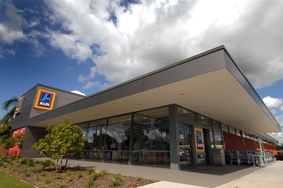 A new report from global banking giant Morgan Stanley, indicates that German discount chain Aldi has reached “critical mass” in Australia. According to the report, the point of critical mass is 350 stores and $A4.03 billion in sales, “this is the point when private label scale is achieved, which is critical for discounters’ buying terms.”
A new report from global banking giant Morgan Stanley, indicates that German discount chain Aldi has reached “critical mass” in Australia. According to the report, the point of critical mass is 350 stores and $A4.03 billion in sales, “this is the point when private label scale is achieved, which is critical for discounters’ buying terms.”
An Aldi Australia spokesperson told C&I WEEK that, “The report by Morgan Stanley highlights Aldi Australia’s success in the Australian market. Our unique business model offers a point of difference against our major competitors, and we’re confident in our continued growth across the country. This comes down to our ability to provide customers with a convenient way to shop for high quality products at permanently low prices.
“Our expansion to South Australia and Western Australia will see us open up to 120 new stores in the coming years, giving more Australians the opportunity to discover the Aldi shopping experience. We expect strong demand from local residents, as we have seen along the eastern seaboard.
“Aldi Australia will continue to grow and we anticipate that our national expansion will deliver much needed competition in the supermarket sector and lower prices for consumers.
While the expansion and success of Aldi in Australia is good news for consumers, it is not so good for the supermarket duopoly who will face stiffer competition.
Jeff Rogut, chief executive officer, Australasian Association of Convenience Stores Limited told C&I WEEK that, “Using the UK as an example, stores such as Aldi and Lidl are putting enormous pressure on the major supermarkets, forcing prices down which also impacts on their sales, profitability and overall market share. What they are doing also sends a message to customers that smaller format stores such as Aldi are a very viable alternative to the major supermarkets from range, price, private brand and importantly quality aspects. Convenience store shopping globally is a growth opportunity.
“In Australia I suggest that as Aldi grows, such trends will become more evident here as well. As convenience store shopping becomes more ‘acceptable’ it is a huge opportunity for our industry to keep evolving and differentiating their offer to changing customer needs with a greater focus on quality fresh foods, bakery items, beverages and take home meals to name just a few key areas. Ideally we would also want to be able to sell beer and wine as most overseas convenience stores do.
“Aldi in the UK are also rolling out smaller format high street stores so developments here will be interesting to watch,” Mr Rogut said.

